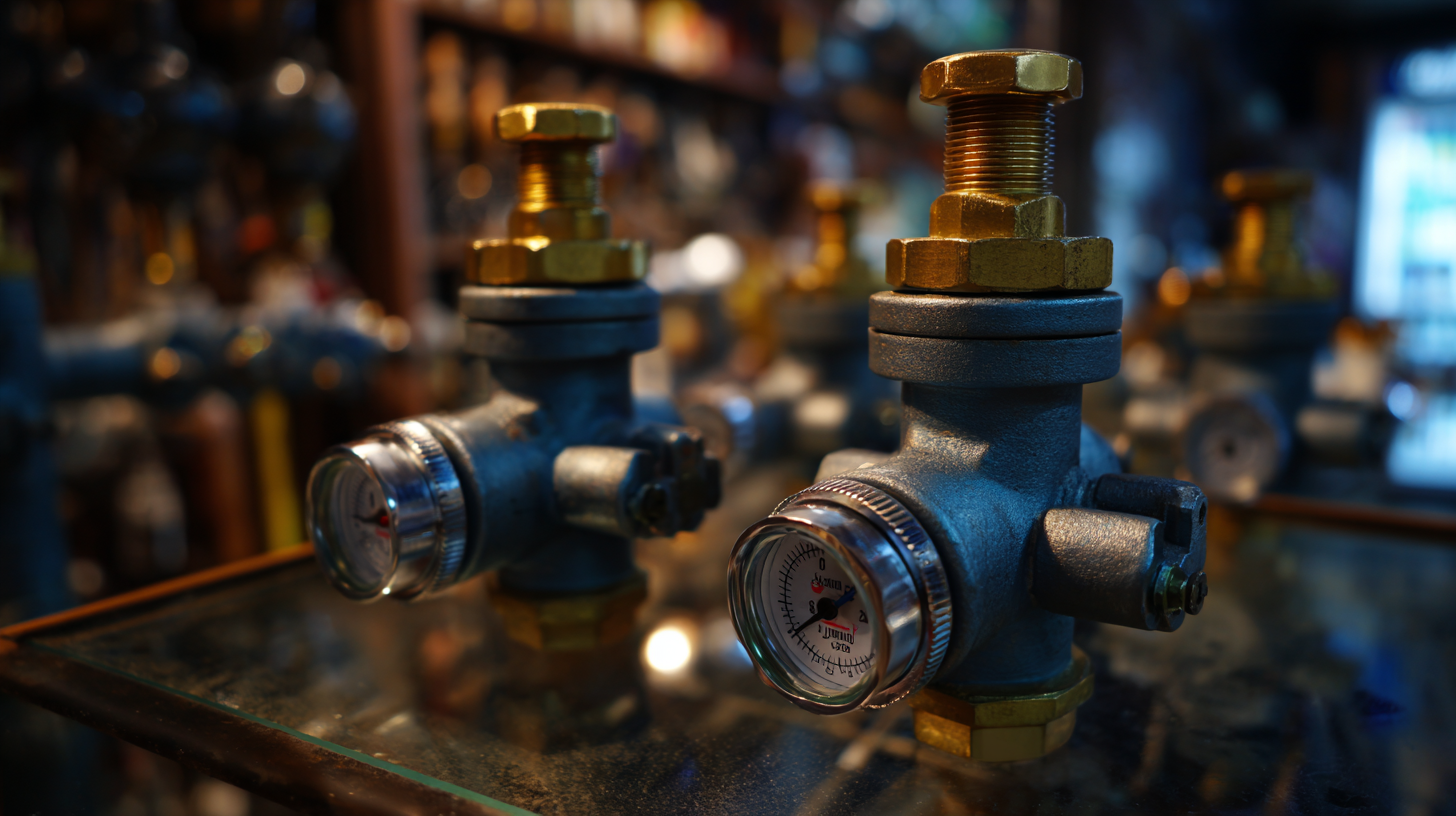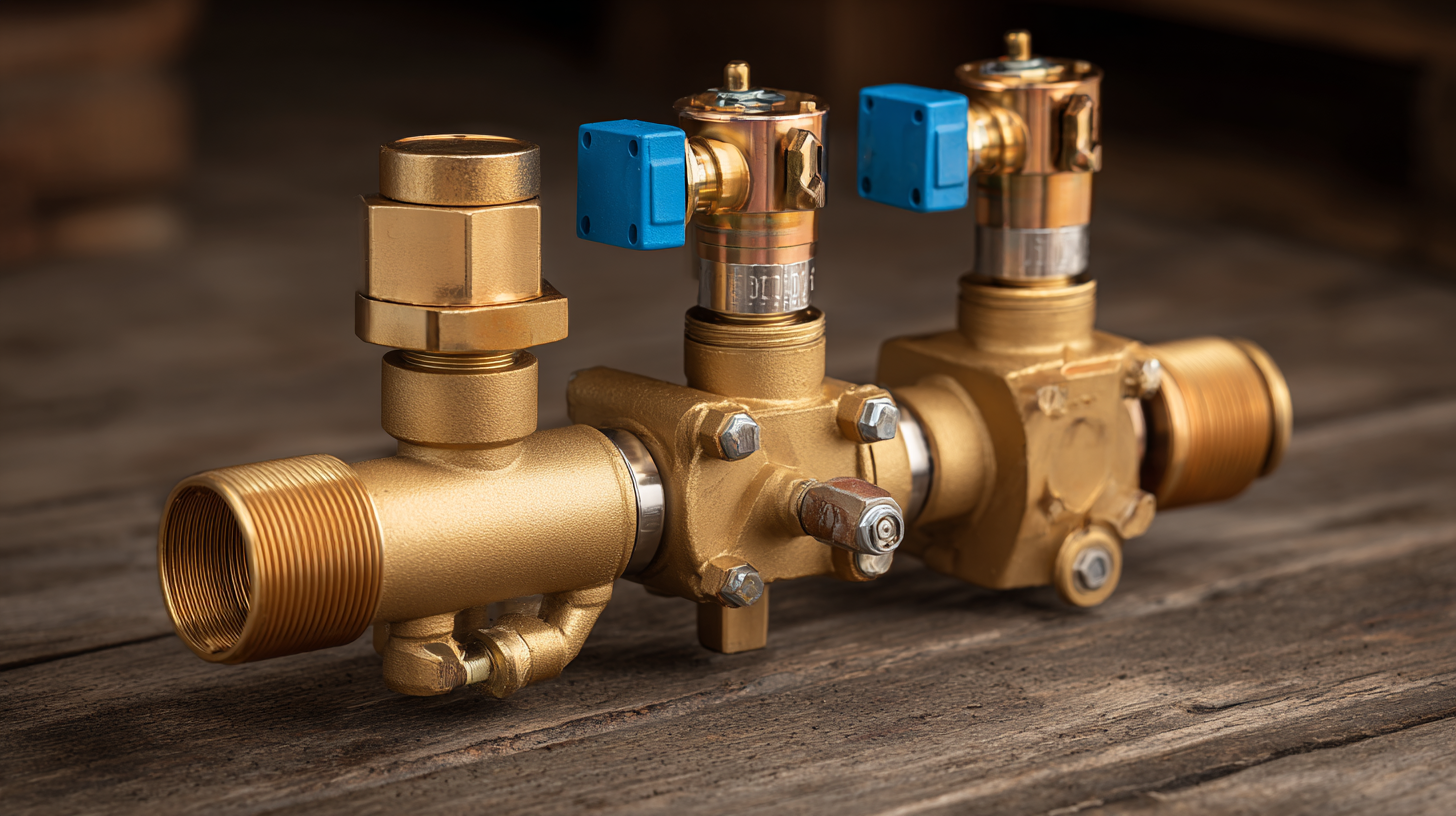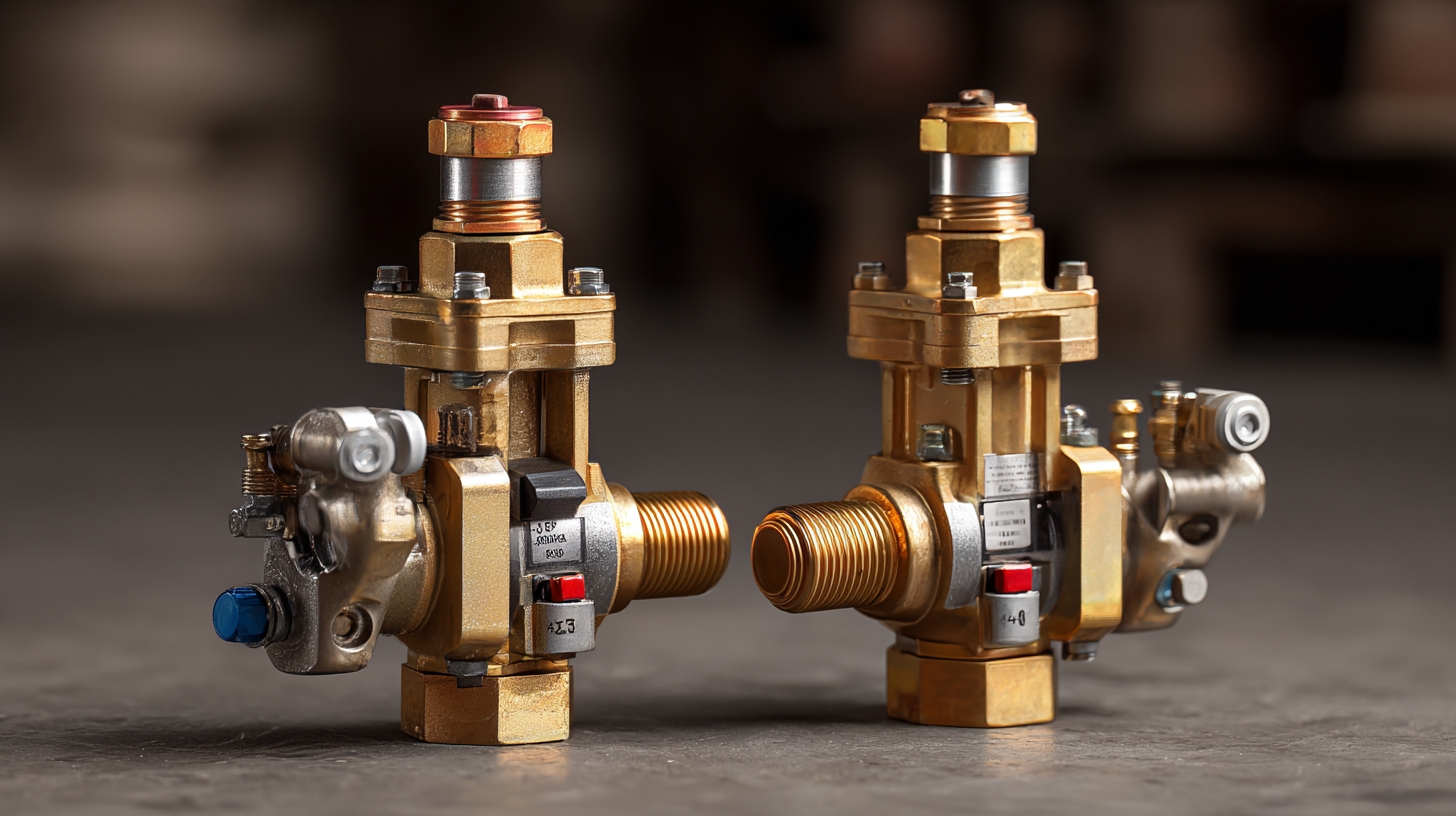- Products
- Pressure Reducing Regulators
- Back Pressure Regulators
- Tank Blanketing Valves
- Temperature Regulators
- Industrial Control Valves
- Wafer Style Control Valves
- JCVS Industrial Control Valves
- Globe Style/Cage Guided Control Valves
- Mixing/Diverting Control Valves
- Motor Operated Control Valves
- Valve Positioners & Accessories
- Applications
- Resources
- Find a Sales Rep
- Brands
Navigating Import and Export Certifications for the Best Gas Regulators in the Market
In today's global marketplace, the importance of stringent import and export certifications cannot be overstated, particularly for essential components such as gas regulators. These devices, pivotal in managing gas flow and ensuring safety in various applications, demand not only high-quality manufacturing but also compliance with international standards. As China continues to evolve as a leader in manufacturing, the phrase "中国制造,以品质赢得世界尊重" encapsulates the nation's commitment to quality. In this blog, we will explore the intricate landscape of navigating import and export certifications for gas regulators, highlighting the steps manufacturers and businesses must take to ensure that their products meet global safety and reliability criteria. By understanding these regulations, industry players can enhance their market presence and uphold the high standards for which Chinese manufacturing has become renowned.

Understanding Import and Export Certifications for Gas Regulators
When importing and exporting gas regulators, understanding the necessary certifications is crucial for compliance and market access. In the United Arab Emirates (UAE), a key export destination for many businesses, navigating these certifications can be particularly challenging. The UAE has specific requirements around import and export documentation, which often includes safety and quality certifications to ensure products meet regulatory standards. Businesses looking to trade in this region must familiarize themselves with the relevant documentation processes, such as obtaining the necessary licenses and adhering to local regulations.

In addition to UAE-specific requirements, the broader landscape of global trade imposes its own set of certifications, particularly in regions like Europe and India. The EU's F-gas Regulation, for instance, not only impacts the trade of gas regulators but also requires that products comply with stringent environmental standards. Understanding these international regulations is paramount for businesses aiming to expand their market reach, as non-compliance can lead to penalties and hinder the export process. Companies must invest in research and ideally engage local experts to navigate these complex certification requirements efficiently.
Key Certification Standards to Look for in Gas Regulators
When choosing gas regulators, understanding the key certification standards is vital for ensuring safety, performance, and compliance with environmental regulations. Specifically, gas regulators should meet stringent criteria that pertain to emissions, durability, and overall efficiency. With increasing government focus on emissions reduction, certifications that align with the latest EPA standards for volatile organic compounds (VOCs) and methane emissions are essential. These standards not only ensure that the regulators operate efficiently but also that they contribute to the broader goal of climate neutrality.
Additionally, the rise of green certifications highlights the importance of sustainability within the gas sector. As markets transition towards renewable energy sources, selecting gas regulators that are certified for their environmental impact can provide a significant competitive edge. Companies should look for regulatory compliance that supports the decarbonisation of the gas and hydrogen markets. This alignment with green supply chain principles ensures that the products they use are not only compliant but also contribute to a sustainable future, meeting both consumer demands and legal requirements.
Navigating Import and Export Certifications for the Best Gas Regulators in the Market
This bar chart illustrates the importance of various certification standards for gas regulators in the market. The key certifications are measured by their prevalence among gas regulators available for export or import.
The Importance of Compliance in Global Trade of Gas Regulators
In the global trade of gas regulators, compliance with international certifications is crucial. The recent Global Compliance Survey 2025 emphasizes the need for businesses to enhance their compliance strategies, especially in a complex regulatory environment. Companies operating in this sphere must navigate a myriad of regulations, including those related to greenhouse gas emissions. The EU’s annual monitoring, reporting, and verification (MRV) cycle plays a pivotal role in assessing compliance within the gas sector, as it holds firms accountable for their emissions and ensures that they adhere to stringent environmental standards.
Moreover, as the European Union considers adjustments to methane emissions regulations for U.S. gas imports, it becomes apparent that compliance is not merely about adhering to existing standards but also about anticipating regulatory changes. The regulatory landscape is dynamic; businesses must remain vigilant and adaptable to avoid potential trade conflicts. With a focus on maintaining compliance, companies can protect their market position and contribute to global sustainability efforts, leveraging insights from reports that indicate a growing willingness to innovate and prioritize customer needs within the regulatory framework.

A Step-by-Step Checklist for Importing Gas Regulators
When importing gas regulators, it's essential to navigate the complex landscape of certifications to ensure compliance and safety. According to a report by the National Institute of Standards and Technology, nearly 30% of imported gas regulators fail to meet North American safety standards. This statistic highlights the importance of following a comprehensive checklist during the importation process. Key items include verifying the product's compliance with ASTM and ANSI regulations, obtaining necessary certifications such as the UL listing, and ensuring third-party testing has been conducted.
Tip: Always request detailed documentation from your supplier regarding the gas regulators' compliance status. This should include certification numbers and test results. Having these documents readily available will not only streamline the import process but also serve as crucial evidence in case of regulatory audits.
Additionally, it’s vital to stay updated on the latest regulations by consulting with trade organizations such as the American Gas Association. Their insights can provide clarity on any shifts in compliance requirements that may affect your imports.
Tip: Establish strong communication with your suppliers to ensure they are equally aware of the latest regulations and to foster a partnership that emphasizes quality and compliance.
Navigating Customs Regulations for Gas Regulator Exports
When exporting gas regulators, understanding customs regulations is crucial to ensure compliance and smooth transactions. Each country has its own set of rules governing the import and export of gas-related equipment, and navigating these can be complex. Proper research into the specific certifications required in the destination country is essential. Many countries require compliance with international standards or certifications performed by recognized bodies, which can impact the ability to export efficiently.
In addition to certifications, it is important to be aware of tariff classifications and duty rates that apply to gas regulators. Properly classifying your products will facilitate smoother customs clearance and can prevent unexpected costs. Engaging with a customs broker who understands the nuances of exporting gas regulators can also provide valuable insights and assist in preparing the necessary documentation, such as export licenses and invoices. By meticulously adhering to customs regulations, businesses can not only avoid delays but also enhance their reputation in international markets.
Navigating Import and Export Certifications for the Best Gas Regulators in the Market
| Certification Type | Issuing Authority | Countries Applicable | Validity Period | Additional Requirements |
|---|---|---|---|---|
| ISO 9001 | International Organization for Standardization | Global | 3 years | Annual surveillance audit |
| CE Marking | European Union | EU Member States | No expiration | Compliance with EU regulations |
| UL Certification | Underwriters Laboratories | North America | 3 years | Product retesting if modified |
| CSA Certification | Canadian Standards Association | Canada | 5 years | Follow-up audits |
| ASME Boiler and Pressure Vessel Code | American Society of Mechanical Engineers | USA and International | No expiration | Periodic reviews required |
